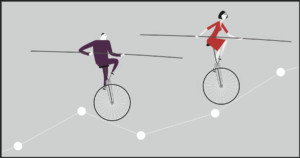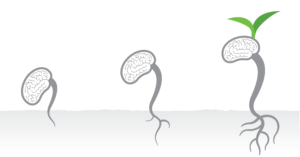The phrase “stay in your swim lane” has become a familiar refrain, especially in the corporate world. A euphemism for focus on your responsibilities, stay out of mine.
It has also come to mean sticking to your area of competence and experience.
But what if you want to try something new?
You Pivot™ clients want change; that’s why they sign up for the program. Sometimes, the change they seek results in a shift in the same lane; sometimes, it’s not only a new lane, it’s a new pool.
Following is my personal swim lane story. I’ve had three major pivots in my life. My first significant pivot was a shift from executive in the financial services world to consultant in the same space. I was swimming in a new pool of entrepreneurship rather than corporate executive, but the lane, i.e., financial services, was familiar.
My next pivot was to a new pool and a new lane as I began working primarily with C-Suite leaders of privately held companies, first as a consultant and then as a leadership coach. This pivot was challenging in new ways as I had to overcome the swim lane expectation. After spending 20+ years in financial services, that was my expected swim lane. I wanted to be industry agnostic, and it took a while before I had a diverse group of clients from different industries.
By the time I created the You Pivot™ Program, I had been swimming in my executive coach lane for many years. The shift from leadership coach to executive life coach – supporting leaders who are in transition and want to pivot – was seamless.
As I think about my You Pivot™ clients, most have stayed in their lane. Some have chosen a shift to a new role in the same industry, and some have stayed where they were with a fresh perspective. A few have ventured out of their lane, e.g., from corporate executive to founder of a new enterprise, from business leader to not-for-profit leader, or even out of leadership to direct volunteering.
The peer pressure to stay in your lane can be intense. I have a client who has been a not-for-profit leader for many years; colleagues are pushing her to move to her next NFP leadership role, to stay in her lane. She wants to explore other pools and has begun this exploration since we have been working together.
In summary, while staying in your lane is easier and holds merit in some contexts, it is essential to recognize that there are situations where breaking free from such constraints is not only acceptable but advantageous.
Embracing flexibility, being open to new experiences, and a willingness to investigate other “pools” can lead to personal and professional growth in this ever-changing world.









 The initial results of my Pivot are excellent. I feel I have much greater clarity regarding the next 3-5 years..
The initial results of my Pivot are excellent. I feel I have much greater clarity regarding the next 3-5 years.. 